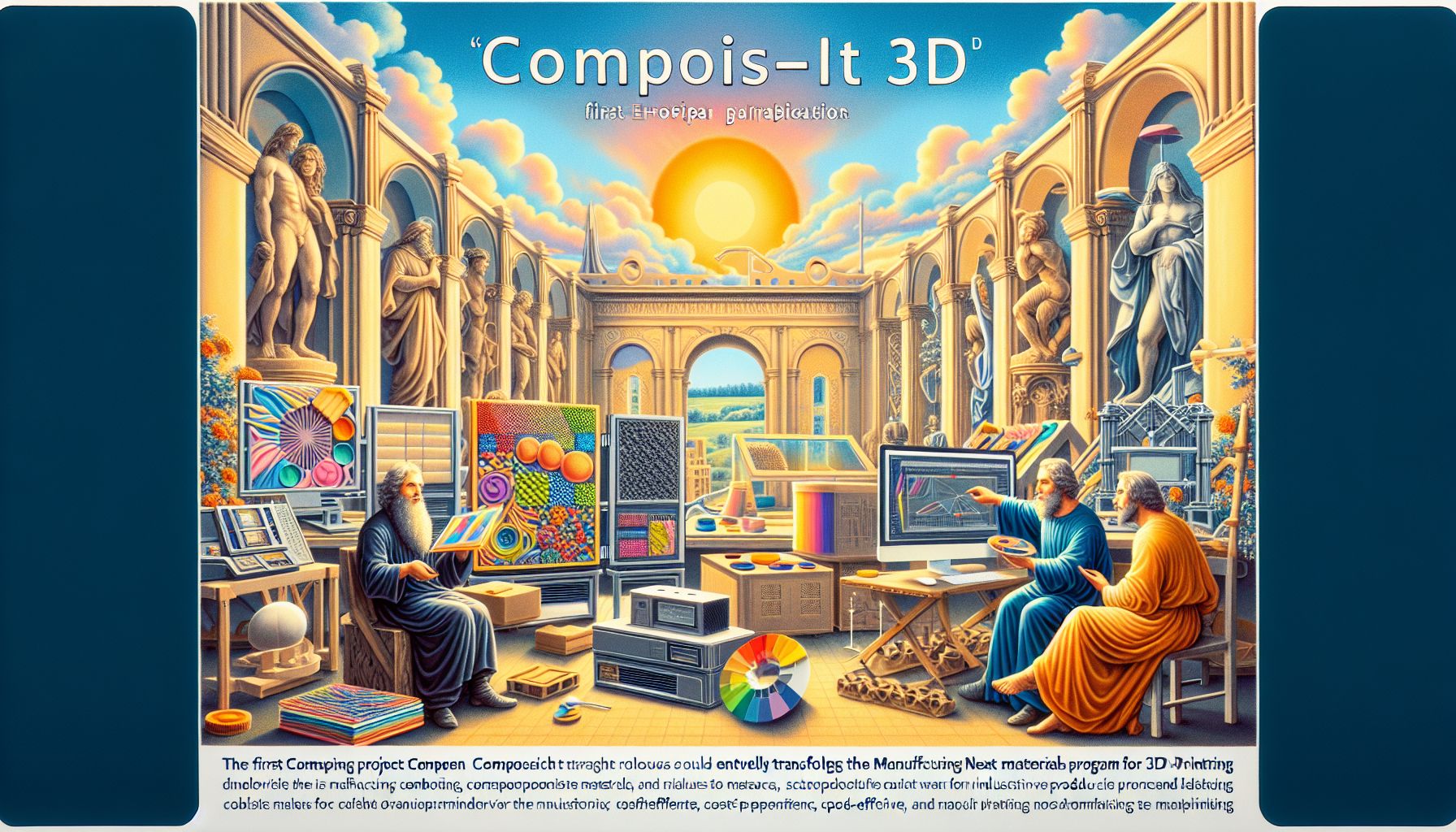European Collaboration Launches Innovative 3D Printing Project

Europe, Wednesday, 9 October 2024.
Opiliones B.V. and 3D-Druck Bognar initiate ‘Compose-it 3D’, the first upscaling project in the Manufacturing NextMaterials program. This cross-border collaboration aims to develop advanced composite materials for 3D printing, potentially revolutionizing industrial production with more efficient, cost-effective, and sustainable methods.
A Leap in Material Science
The ‘Compose-it 3D’ project marks a pivotal advancement in the field of 3D printing technology, focusing particularly on materials science. This initiative, a part of the broader Manufacturing NextMaterials (MNM) program, is centered around the development of composite granulate materials. These materials are intended to serve as raw inputs for Opiliones B.V.’s advanced granulate 3D printers, enhancing the capability to print technical and structural components for both industrial machinery and consumer appliances[1].
Collaboration Across Borders
The collaboration between Opiliones B.V., based in the Netherlands, and 3D-Druck Bognar from Germany, underscores a fusion of expertise in 3D printing technology and materials science. Opiliones B.V. is known for its large-scale Delta FDM 3D printers, which have been pioneering in printing not only plastics but also materials like PA composites, concrete, and metal. Meanwhile, 3D-Druck Bognar, led by engineer Lars Bognar, brings over a decade of experience in additive manufacturing and material innovation, having previously contributed to developments at Ford Motor Company[1].
Technological and Economic Implications
The primary aim of this project is to refine and upscale the application of three types of composite granulates, which will be pivotal in enhancing the functionality and efficiency of 3D printers. By improving the Opiliones Metal Granulate 3DPrinter to process these new materials, the project seeks to unlock new possibilities in producing more durable, cost-effective, and sustainable 3D printed products. This endeavor is not only significant for the two companies involved but also for the broader European manufacturing sector, potentially setting a new standard in industrial production methods[1].
Funding and Strategic Importance
The project is financially supported under the Interreg Deutschland-Nederland VI program, with a substantial investment of 4.14 million euros from various European and regional entities. This funding underscores the project’s strategic importance in driving innovation within the EU’s manufacturing industries. By leveraging this financial backing, ‘Compose-it 3D’ aims to lead the way in developing scalable, innovative solutions that meet the growing demand for sustainable manufacturing practices[1].

